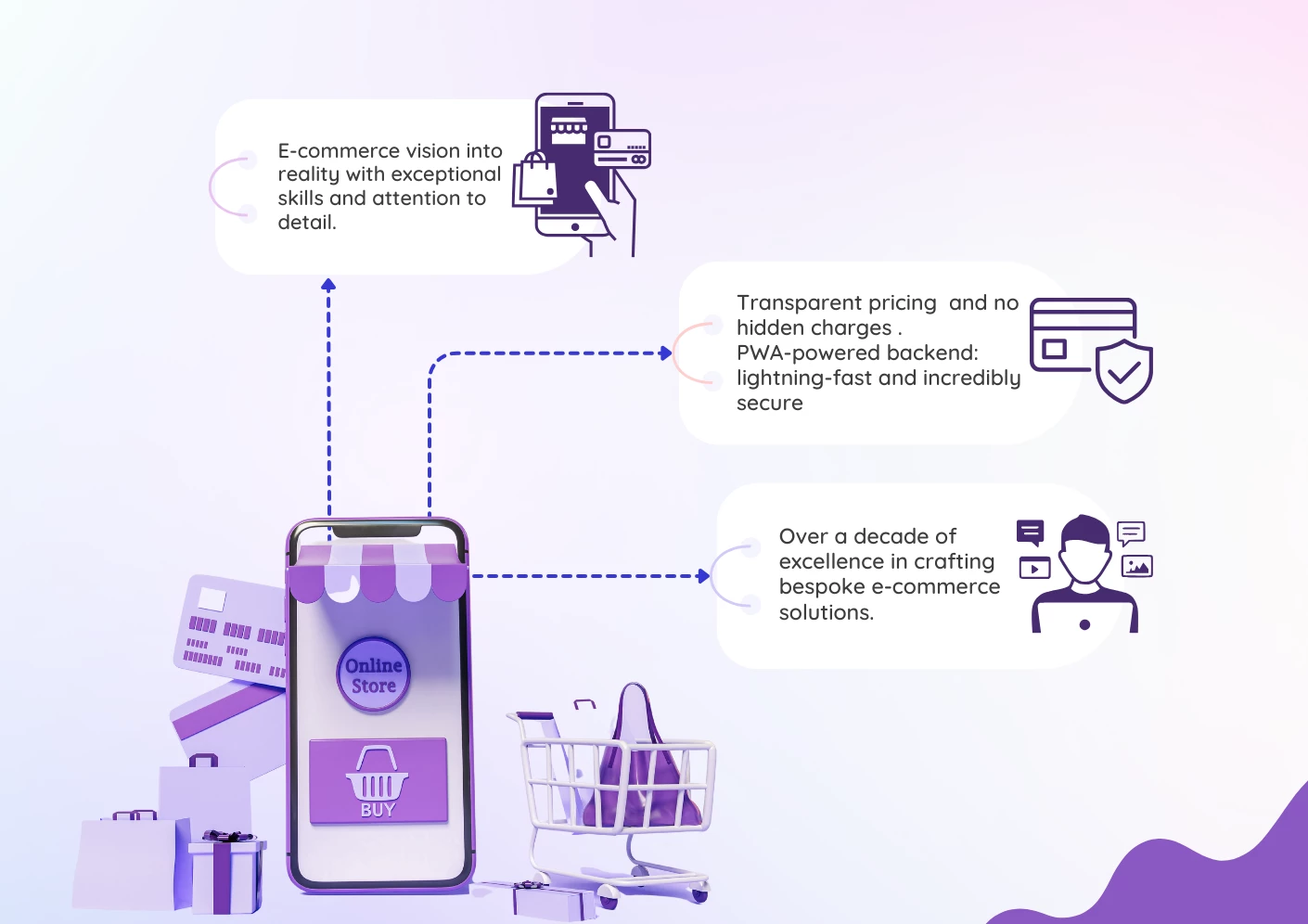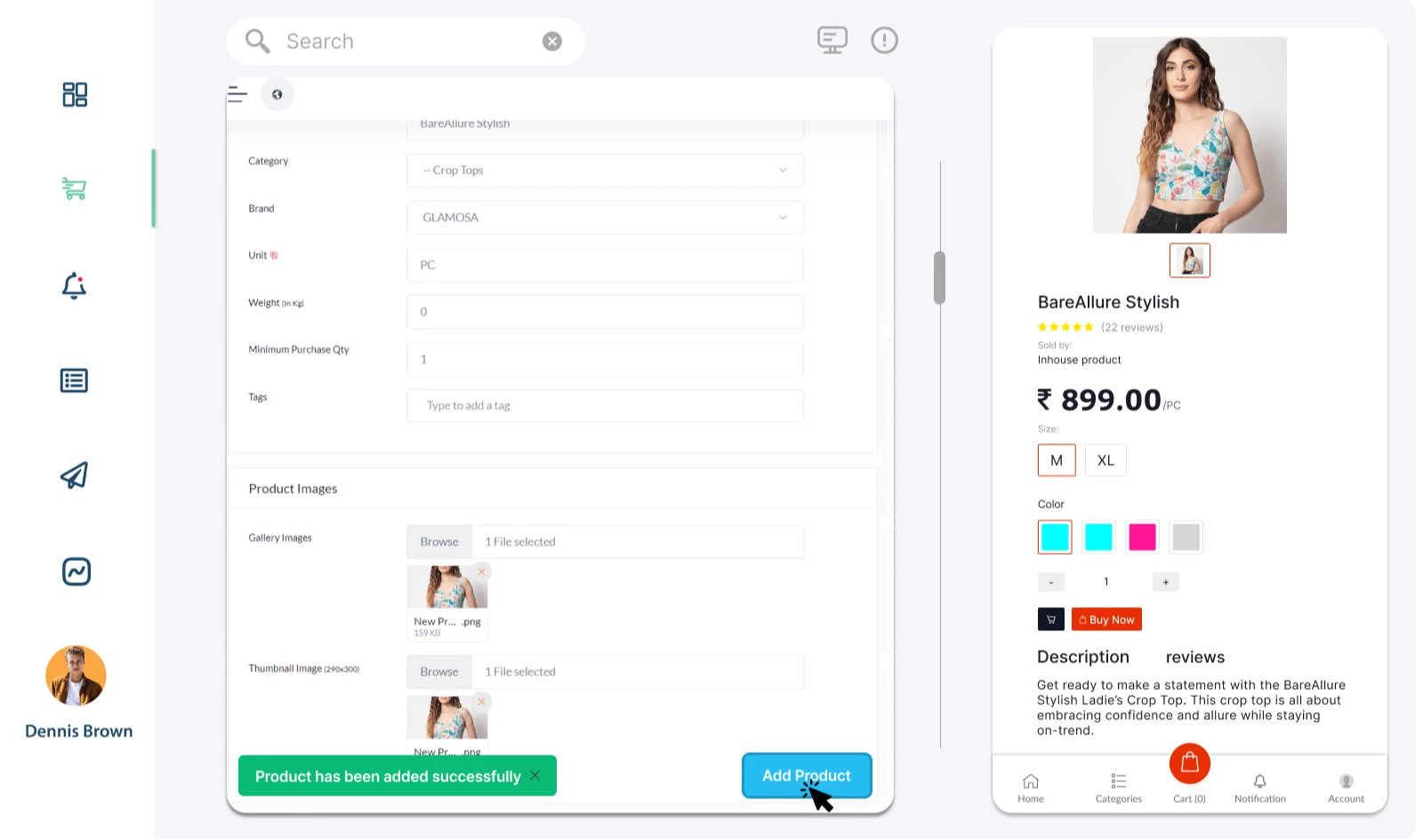In today’s digital environment, an e-commerce site has become a necessity for many businesses. However, when setting up an online store, the decision is more than just choosing a pre-built platform or template. Choosing a custom e-commerce site can provide solutions to your business’s specific needs, but it’s important to consider some important factors before investing.
1. Business goals and requirements
Before focusing on design and features, it's crucial to clarify your business goals. What do you aim to achieve with your online store? Are you looking to expand your product range, introduce unique features, or enhance the user experience?
2. Budget Considerations
Custom eCommerce websites are usually much more expensive because they will be customized for your business and contain unique designs and functionality. It includes initial development and costs of future maintenance, updates, and redevelopment with the growth of your business.
When setting your budget, be sure to account for:
- Design and development costs (can vary widely based on complexity)
- Hosting and domain fees
- Integration with third-party tools or services
- Security features (SSL certificates, payment gateway integration)
- Regular support and updates
3. Scalability
Your custom e-commerce website should adapt to your current needs and scale as your business grows, since what works today may not be enough in the future.Choosing a scalable solution ensures your platform can adapt, saving you from needing a new system later.
4. User Experience and Design
In e-commerce, a well-designed and user-friendly website is key to turning visitors into customers. Key design considerations include:
- Target audience: Design with your audience in mind.
- Mobile responsiveness: Make sure the site works well on all devices.
- Easy navigation: Help customers easily find products and make purchases.
- Fast loading: Avoid slow sites to prevent frustration and abandoned carts.
Good design and user experience can lead to repeat business and positive reviews, which are important for e-commerce success.
5. Security Features
Security is crucial for online transactions.A custom e-commerce website requires security to protect your business and your customers' information. Without it, you risk experiencing data breaches and fraud, thus losing customer trust.
Ensuring safe transactions will allow you to fulfill your legal requirements and gain trust with your customers.
6. SEO and Marketing Integration
Even the best e-commerce site can't generate sales if no one can find it. The first step in SEO is to ensure your website ranks well in Google for relevant keywords. SEO best practices should be taken into consideration when creating the custom website.
7. Regular Support and Maintenance
A custom website requires ongoing attention. You'll need to update it, fix issues, and ensure it stays functional as your business grows. It's important to have a team or service ready for regular support and maintenance.
When choosing a development team, ask about:
- Maintenance packages and their costs
- Response time for troubleshooting or issues
- Whether they offer training on how to manage the website after it’s built
- How they handle updates, security patches, and new features
8. Timeframe for Development
Building the custom eCommerce website takes time.The development process can take several months, depending on your website's complexity. Set realistic deadlines and consider possible delays during development.
Investing in an eCommerce website is a significant decision that can shape your business for years. It offers advantages such as customer growth and unique features, but it also comes with some challenges like higher costs and ongoing maintenance. By considering goals, budgets, capacity building, etc., you can make informed choices about the success of your business.





